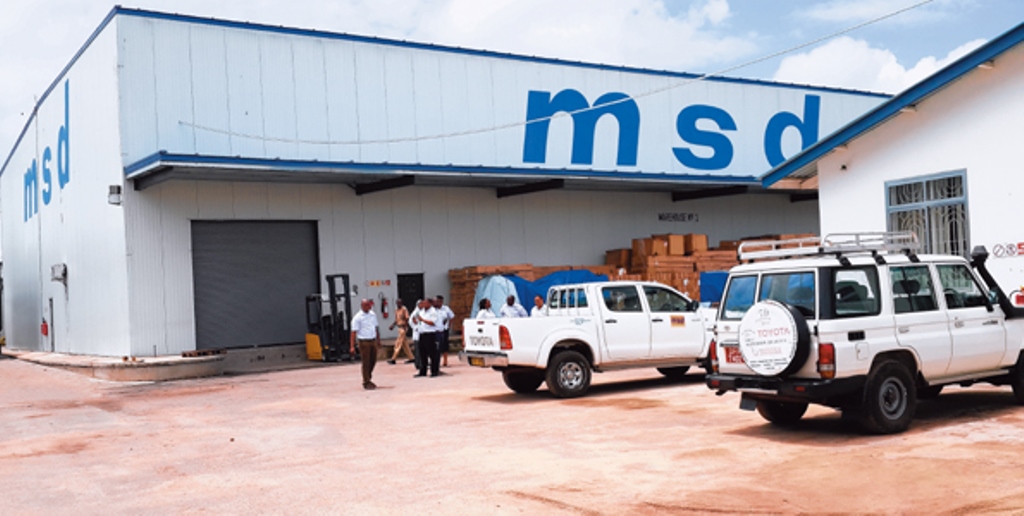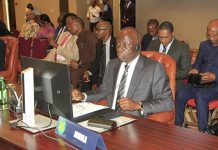Author: MARY RAMADHANI
AfricaPress-Tanzania: TANZANIA is making notable strides in the health sector proved by the deal signed between the Medical Stores Department (MSD) and Southern Africa Development Community (SADC) and have attracted the attention of its immediate neighbours.
The deal signed in October 2018 has enabled the MSD to be the major supplier of medicines, medical and laboratory equipment to 16 member states of the SADC.
The MSD assumed nine major responsibilities including receiving orders from 16 SADC countries, administering statistics and information as needed, and as well administering the database, and monitoring the buying process.
And, this is a clear testimony that President John Magufuli’s government has strengthened access to medicines, medical devices to the people of Tanzania, enough to extend the mode of services to the neighbouring countries.
Reflecting on that, recently in Dar es Salaam, Minister for Health, Community Development, Gender, Elderly and Children, Ms Ummy Mwalimu further said: “We have strengthened access to medicines, medical devices; with an increased budget from 31bn/- in 2015 to 270bn/- now.”
The quote indicates an increase in the budget by almost ten folds in just over four and a half years of President Magufuli’s reign.
“President Magufuli has delivered. He gave the assurance of strengthening and improving health care in his speech to inaugurate the 11th Parliament late November 2015 and ever since, Tanzania has made great strides in access to quality essential medicines and health services during the fifth phase government,” she added.
It is evident that during President Magufuli’s leadership, Tanzanians have witnessed significant reforms in health care delivery; including enhancement in the availability of medicines, equipment, medical supplies in regional, national, and referral hospitals, she remarked.
In his speech to dissolve the 11th Parliament in Dodoma recently, the Head of State, promised among other things, to increase the budget for drugs and improve their accessibility to Hospitals, Health Centres, and Dispensaries.
Presenting her ministry’s budget estimates for the year 2020/2021 in the National Assembly in April, Ms Mwalimu revealed that her ministry planned to implement various projects aimed at improving the delivery of health care, including strengthening access to medicines, equipment, medical supplies, and reagents in public health facilities.
“The government has continued to ensure the availability of medicines, equipment, medical supplies and reagents in public health care facilities and remain reasonable through MSD, which buys stores and distributes more than 2,545 types of medicines, medical supplies and reagents,” she said.
She further said that 1,865 types of medicines are in the vertical programmes and 680 medications are essential drugs, where 312 of them have been placed in the priority list at the ministry to ensure their continuous availability at MSD.
She added that by March this year, the availability of the essential medicines in the priority list in the country’s health care centers was at 80 per cent.
From July 2019 to March 2020, the ministry through MSD had distributed essential medicines worth 99.3bn/- and 361.5bn/- medicines in the vertical programmes, she remarked.
The drugs were distributed directly to 5,749 health care facilities, at a cost of over 15bn/- during the same period.
MSD has continued to purchase medicines from pharmaceutical manufacturers with a total of 161 being in the Framework Agreement and 18 among them in domestic manufactures.
“This measure intends to ensure the availability of all the essential medicines, medical supplies and reagents continue to be improved in all MSD warehouses based on the availability of funds,” she stated.
The ministry has also established the Health Commodities Revolving Fund that aims at strengthening the management of pharmaceutical funds in health care facilities.
In response to the expiring of pharmaceuticals, Ms Mwalimu said that the ministry had prepared a guideline that will avoid such incidences; while giving directives to all Chief Medical Officers to ensure they follow them especially in preparing medicine projection.
However, she noted that the Pooled Procurement Services (PPS) system has brought about a price reduction of 30 to 60 per cent.
According to the Muhimbili National Hospital (MNH) Director General, Professor Lawrence Museru, the availability of medicines at the national hospital has been improved and patients were currently accessing drugs by 96 per cent against the previous year’s 40 per cent.
“The national health facility is currently spending 1.5bn/- in procuring drugs in comparison to between 500m/- and 700m/-, which was spent monthly before… this has improved medicine availability at the hospital,” Prof Museru said.







